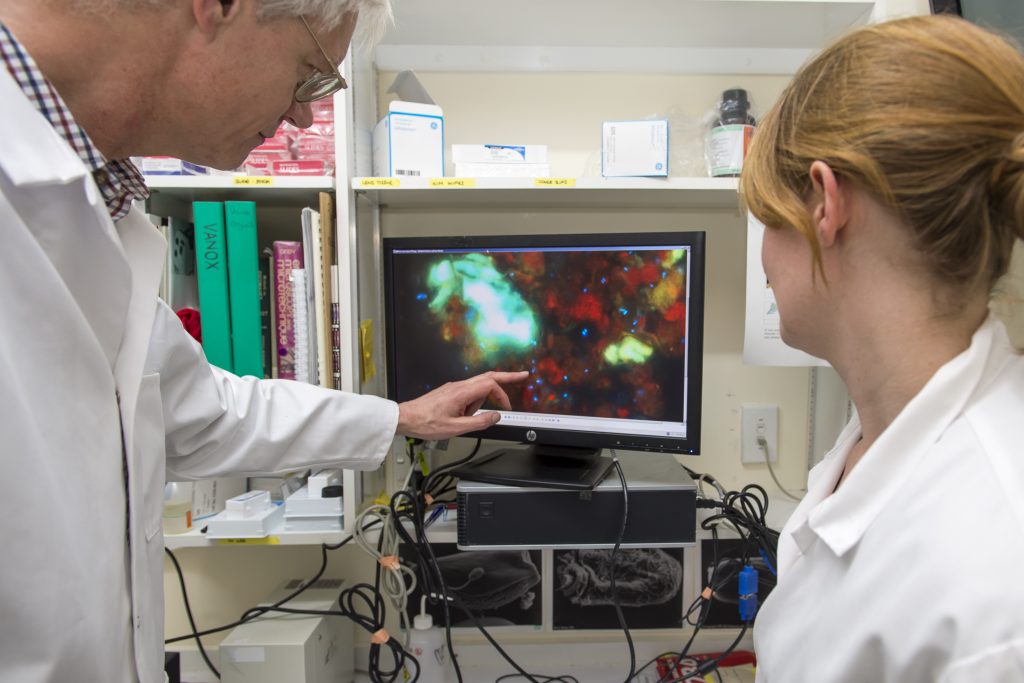Ruminant animals such as cows and sheep produce enteric methane as they digest their feed. This represents a net loss of energy to the animal and a significant source of greenhouse gas emissions from livestock farming.
Rumen modification – manipulating the microbes that produce methane – is a promising area of research for reducing enteric methane emissions. The Rumen Microbial Genomics Network (RMG) is a forum for researchers using genomics approaches to understand enteric methane emissions and how they might be reduced without compromising animal health or productivity.
Recent achievements by Network members are:
- Groundbreaking results from the Global Rumen Census project that found that similar bacteria and methano
 gens dominate in nearly all rumens across a wide variety of species and animal diets.
gens dominate in nearly all rumens across a wide variety of species and animal diets. - The publication of Hungate1000 – a global reference set of genome sequences of rumen microbes – in Nature Biotechnology See here for the press release and here for more on the Hungate 1000
project. A replica of the Hungate 1000 cultures will be held at Queens University Belfast and made available to scientists on demand. A database tool – RumenMine – is also being developed to house the Hungate 1000 sequencing data. - The success in securing funding for a new project, RumenPredict, developing data to link rumen microbiome information with host genetics and phenotype information in order to develop feed-based mitigation strategies
- The compilation of a special edition of the Frontiers in Microbiology journal focused on metaomic approaches to studying the rumen microbiome, current challenges and innovation.
Activities:
The Rumen Microbial Genomics Network held a workshop in August 2019. During the workshop, the two main projects arising from the network, namely the Rumen census and Hungate collection were summarized. The Hungate collection was a major milestone in understanding of the rumen microbiome but there are gaps in available cultured rumen microbes and future plans should be focused on securing funding for the consortia to concentrate on culturing these missing microbes.
Contact:
For more information on the Rumen Microbial Genomics Network, please contact the co-Leads:
- Milka Popova ([email protected])
- Jana Seifert ([email protected])
- Yanfen Cheng ([email protected])
